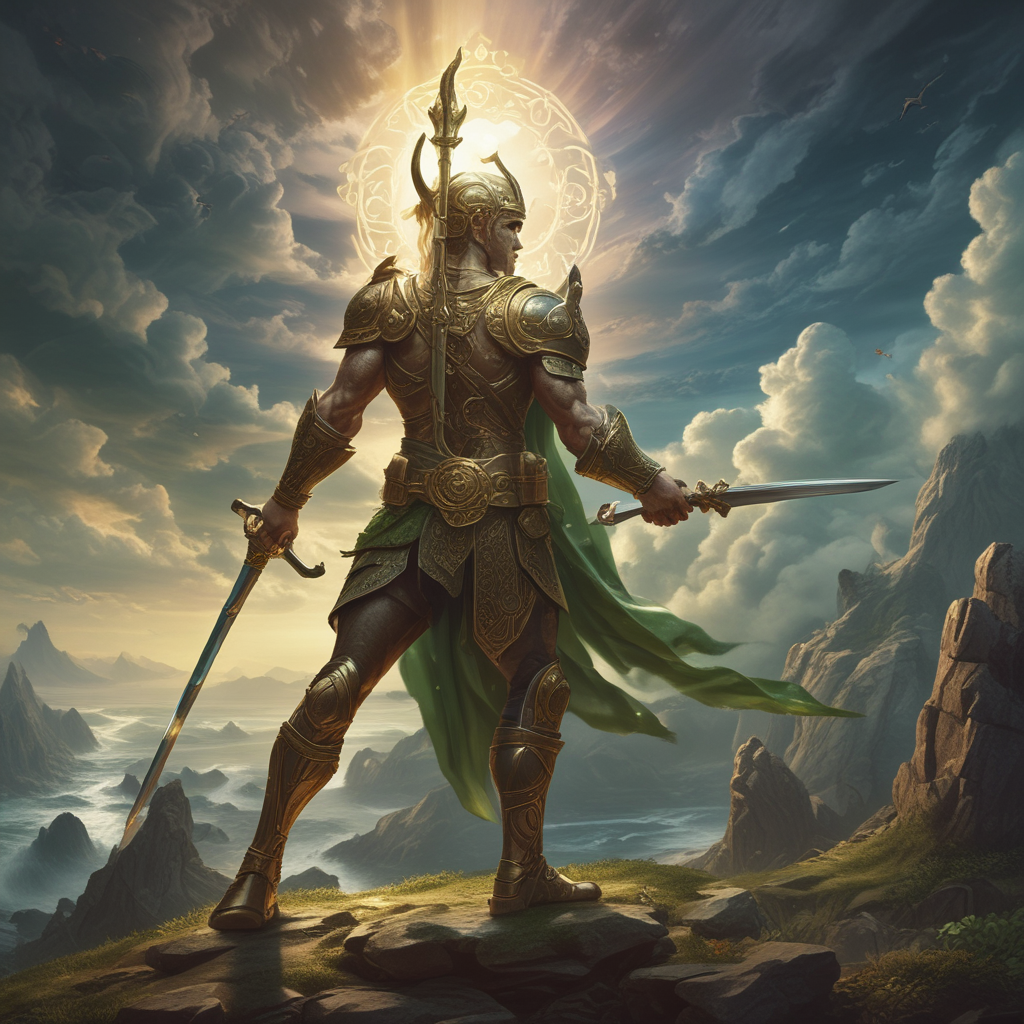The Symbolism of Shadows in Slavic Mythology
Shadows hold a significant and multifaceted role in Slavic mythology, representing various concepts and beliefs. In this delve into Slavic mythology, we will explore the rich symbolism attached to shadows and their profound impact on Slavic culture.
1. Darkness as a Primordial Force
Slavic mythology portrays darkness as an ancient and primordial force, existing before the creation of the world. From the primordial darkness emerged the Slavic pantheon of gods, spirits, and otherworldly beings. Darkness is often associated with chaos, mystery, and the unknown, and its presence serves as a constant reminder of the inherent duality of the universe.
2. Shadows as Portals to the Otherworld
Shadows in Slavic mythology are perceived as gateways or portals to the otherworld, a realm inhabited by spirits, ancestors, and supernatural beings. According to Slavic lore, shadows can shift and transform, providing passage between the mortal world and the ethereal realms. Individuals seeking spiritual guidance or connection with the departed may venture into the shadows, hoping to encounter spirits or receive divine messages.
3. Shadows as Guardians and Protectors
In Slavic mythology, shadows can embody protective spirits or guardians that watch over individuals and their homes. These protective shadows are believed to ward off evil spirits, bring good fortune, and ensure the well-being of those under their care. They often manifest as benevolent ancestors or household deities, offering guidance and support in times of need.
4. Shadows as Representations of Evil Spirits
While some shadows represent benevolent forces, others symbolize evil spirits or entities that bring misfortune and harm. In Slavic folklore, malevolent shadows can take various forms, including those of animals, demons, or even deceased individuals seeking vengeance. Encountering such shadows is often seen as a harbinger of bad luck, illness, or even death.
5. The Shadow as a Reflection of the Self
Slavic mythology also explores the concept of the shadow as a reflection of the self, representing the hidden or repressed aspects of an individual's personality. Shadows can symbolize both the positive and negative qualities of a person, revealing their innermost thoughts, desires, and fears. Confronting one's shadow is seen as a crucial step in personal growth and self-discovery.
6. Shadows as a Metaphor for the Unknown
The vast expanse of shadows in Slavic mythology symbolizes the unknown and the mysteries that lie beyond human comprehension. Shadows represent the hidden realms of the supernatural, where spirits, gods, and mythical creatures dwell. Venturing into the shadows requires courage and a willingness to face the unknown, as it promises both potential enlightenment and the possibility of encountering unknown dangers.
7. The Shadow as a Form of Punishment
In Slavic mythology, shadows can also manifest as a form of punishment for wrongdoings or transgressions. Malevolent shadows, often associated with evil spirits or ancestral curses, are sent to torment individuals who have committed heinous acts or violated sacred laws. These shadows inflict psychological and physical torment, relentlessly pursuing their victims until they repent or face their ultimate fate.
8. Shadows in Slavic Folktales and Legends
Shadows play a prominent role in Slavic folktales and legends, often symbolizing the duality of human nature and the ever-present struggle between good and evil. In the tale of "Vasilisa the Beautiful," the protagonist interacts with both benevolent and malevolent shadows, representing her own inner struggles and the challenges she must overcome to achieve her destiny.
9. Conclusion: The Enduring Power of Shadows in Slavic Culture
Shadows hold a profound place in Slavic mythology, embodying a myriad of concepts and beliefs that have shaped Slavic culture for centuries. From their origins in primordial darkness to their role as guardians, portals, and representations of the unknown, shadows continue to captivate the imagination and inspire awe in the hearts of Slavic people. Their enduring power testifies to the deep-rooted symbolism and evocative nature of shadows in Slavic culture.
FAQs
Q: What do shadows represent in Slavic mythology?
A: Shadows in Slavic mythology symbolize darkness, gateways to the otherworld, guardians, evil spirits, the self, the unknown, and punishment.
Q: Why are shadows important in Slavic folklore?
A: Shadows play a significant role in Slavic folktales and legends, representing the duality of human nature and the struggle between good and evil.
Q: What is the role of shadows in Slavic religious beliefs?
A: Shadows are often associated with ancestral spirits and pagan deities, embodying both benevolent and malevolent forces in Slavic religious beliefs.
Q: Are shadows always negative in Slavic mythology?
A: No, shadows in Slavic mythology can have both positive and negative connotations, representing protective guardians as well as malevolent evil spirits.



